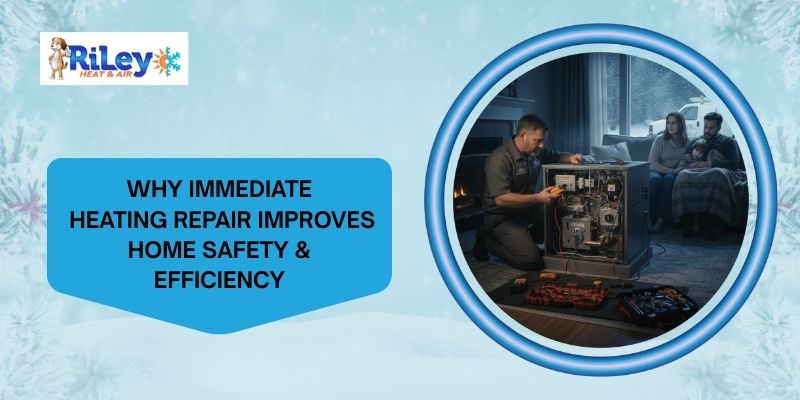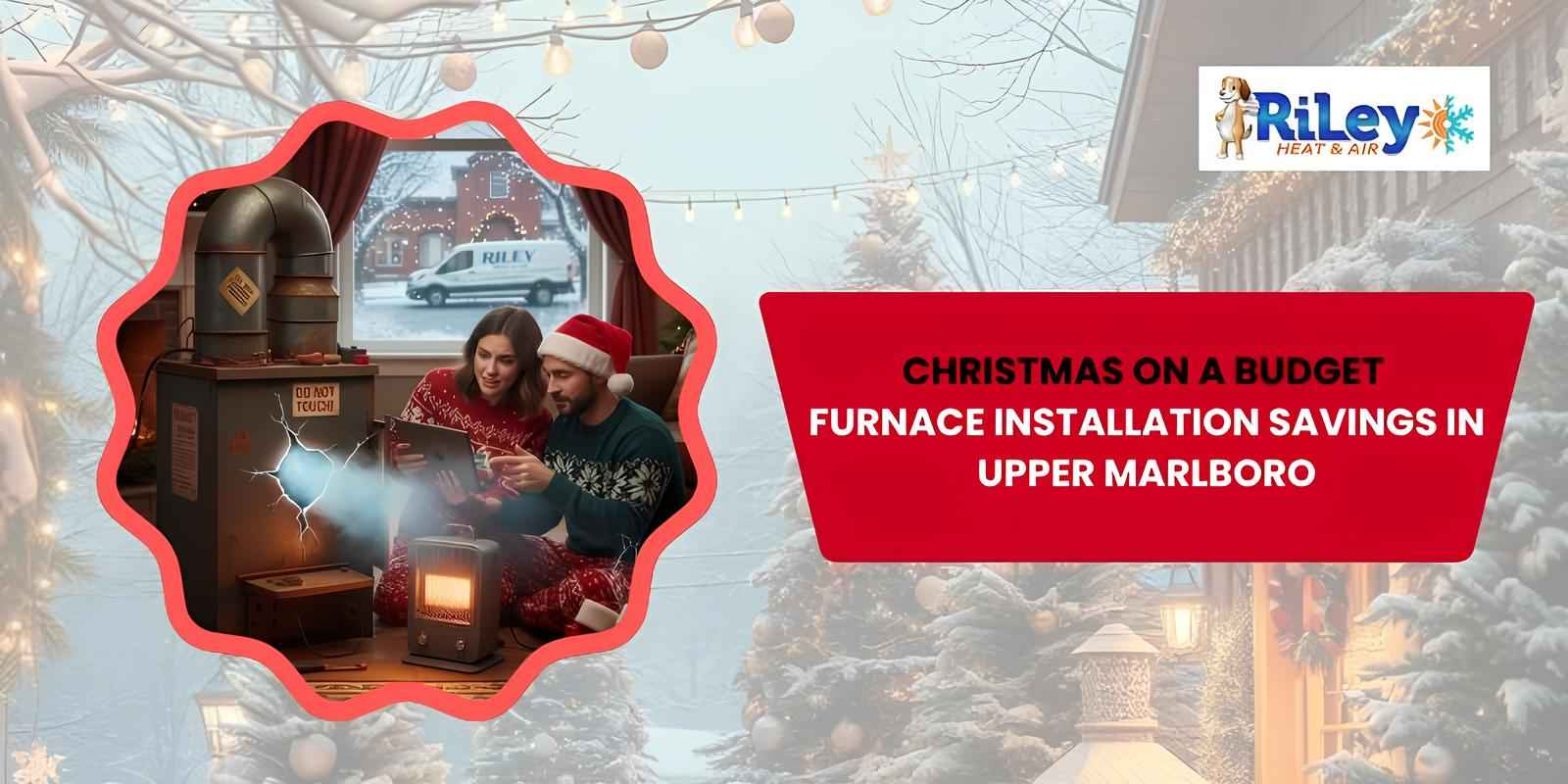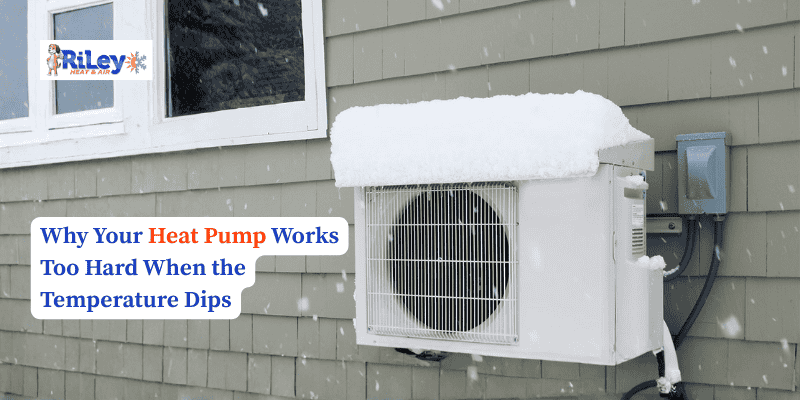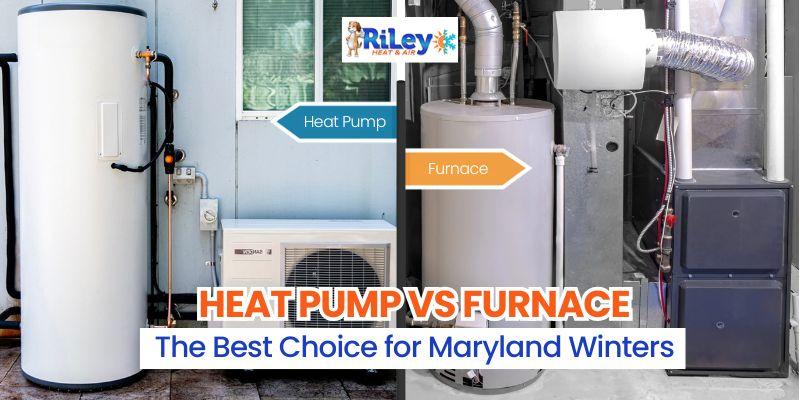
Heat Pump vs. Furnace: Which Is Best for Maryland Winters?
Choosing between a heat pump and a furnace for your Maryland home can be difficult. You must know how they function, how effective they are, how often they require service, and how much space they occupy. This article will compare heat pumps and furnaces based on cost, installation, and efficiency.
What Is a Heat Pump?
A heat pump is one of the best methods for providing heat and cooling in a home. It is even more energy efficient than a standard furnace and air conditioning unit. A heat pump circulates heat from one location and transports it to another.
In winter, it draws heat from the outside and carries it into your house. In summer, it does the opposite: It cools your home by taking heat from the inside and moving it out. Consulting HVAC contractors in Washington, DC, or heating and air conditioning contractors, is essential for reliable installations.
There are several forms of heat pumps available on the market.
- Air-Source Heat Pump: This is the most popular type. It transfers heat through a coil.
- Ground-Source Heat Pump: A ground-source heat pump is a geothermal heat pump system that operates like an air-source heat pump but draws heat only from the ground.
- Gas-Source Heat Pump: This is a less common type. It is similar to an air-source heat pump but has an added coil powered by natural gas to generate much heat.
What Is a Furnace?
A furnace is a heating system installed in many homes to heat the air. It uses fuel, especially natural gas, to generate heat. Natural gas is primarily a mixture of a fossil fuel known as methane. The means of ignition for the heating process in the furnace is a pilot light or an electric spark.
This spark ignites the fuel, melting it into hot air, which a fan circulates throughout your home. A furnace comprises the burner that ignites the fuel and the heat exchanger, which, as its name suggests, transmits the heat. The fan also circulates hot air, and the flue expels gases made during the heating process.
Furnaces come in various types.
- Gas furnaces: Gas furnaces use natural gas to produce heat, making them hotter than electric furnaces. However, gas furnaces emit carbon monoxide, a deadly gas in the home. Therefore, ventilation is crucial for safety purposes.
- Propane furnaces: Propane furnaces are the same as gas furnaces but operate on propane. They can be more efficient. However, propane can be costlier than natural gas. There is a problem of carbon monoxide emissions with propane furnaces.
- Electric furnaces: Electric furnaces use electricity to heat the air in the house. This means there is no danger of fire outbreaks or even carbon monoxide poisoning.
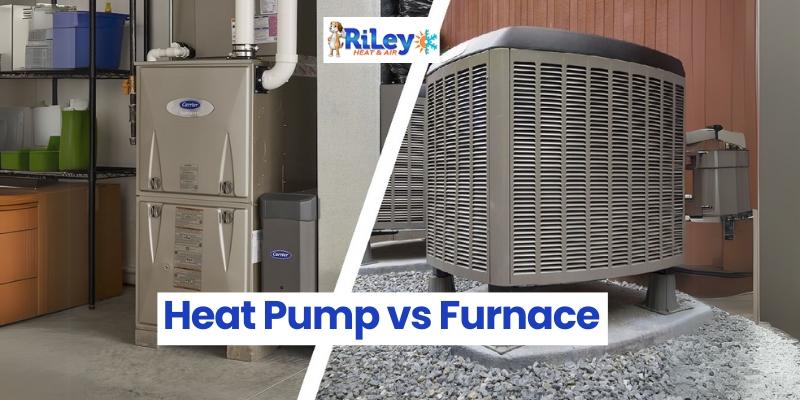
Heat Pump Vs. Furnace
A side-by-side comparison of heat pumps and furnaces is helpful for Maryland homeowners. Details of their similarities and differences will ensure you make an informed decision. Here is what to know about what differentiates one from the other.
Cost
The cost of heating your Maryland home also depends on many factors, including the type of system you use. You should consider your home environment’s current conditions. If natural gas is available at your home, a furnace could cost less in the initial installation. However, a heat pump may be cheaper if you do not have access to gas.
In most cases, heat pumps are comparatively cheaper to install than furnaces. However, government incentives can help determine the total cost. While heat pumps are eligible for tax credits under the Inflation Reduction Act, so are some high-efficiency furnaces. Working with HVAC companies in Washington, DC, can help determine installation and operational costs.
Maintenance
Both heat pumps and furnaces require some maintenance over time. However, heat pumps need more maintenance than furnaces, so you will spend more money maintaining a heat pump in the long run.
For instance, heat pumps require cleaning more often, unlike furnaces. They may also need special fluids or additives to operate without developing problems. The extra maintenance costs should be considered when comparing a heat pump and a furnace for your house. Scheduling regular air conditioning maintenance in Upper Marlboro ensures efficiency.
Performance
Heat pumps and furnaces are two different systems for supplying heat to your house. A furnace generates heat, and a heat pump transfers heat from one location to another. Heat pumps are most effective in moderate climates, where they can quickly move heat from one place to another. However, it becomes difficult for a heat pump to gather enough heat outside in freezing weather.
While heat pumps continue to supply heat regardless of the severity of the cold weather, furnaces do the same thing. This makes them a more reliable source of the desired heat, particularly in the northern climate, where aero-thermal heat pumps may fail to deliver adequately.

Energy Usage
Heat pumps are undoubtedly some of the most efficient equipment in terms of energy consumption. This is because they are not heaters but heat transference bodies, while furnaces are devices that generate heat. Therefore, heat pumps consume less energy than other types of HVACs.
Nevertheless, you must remember that heat pumps struggle with low temperatures outside the home. Heat pumps are not as efficient as furnaces when it's cold outside. Sometimes, a furnace is even more efficient than you initially realized when heating your home. Therefore, ensure you prepare your furnace for optimal performance in winter.
Installation
Heat pump installation can be different depending on the existing system you have in your home. If your home already has air conditioner ducts, installing a heat pump is relatively simple. This will not create much interference and will not be very expensive. However, a duct cleaning service in Washington, DC, or new ductwork installation may be necessary for older homes.
Mini-split heat pumps are ideal if your home does not have ducts to distribute warm or cool air. They do not require ducts, so you do not have to bring in contractors to rip through the walls to install them. Furnaces need ductwork. If your home lacks any, you will have to install it. This can be significant since it requires changing the walls to accommodate the ducts and vents.
Conclusion
The best choice between a heat pump and a furnace depends on your needs and circumstances. Climate, budget, energy efficiency, and your home's infrastructure influence decision-making. Consulting with a qualified HVAC professional can help you assess your needs and determine the most suitable heating system for your Maryland home.
Tags :


